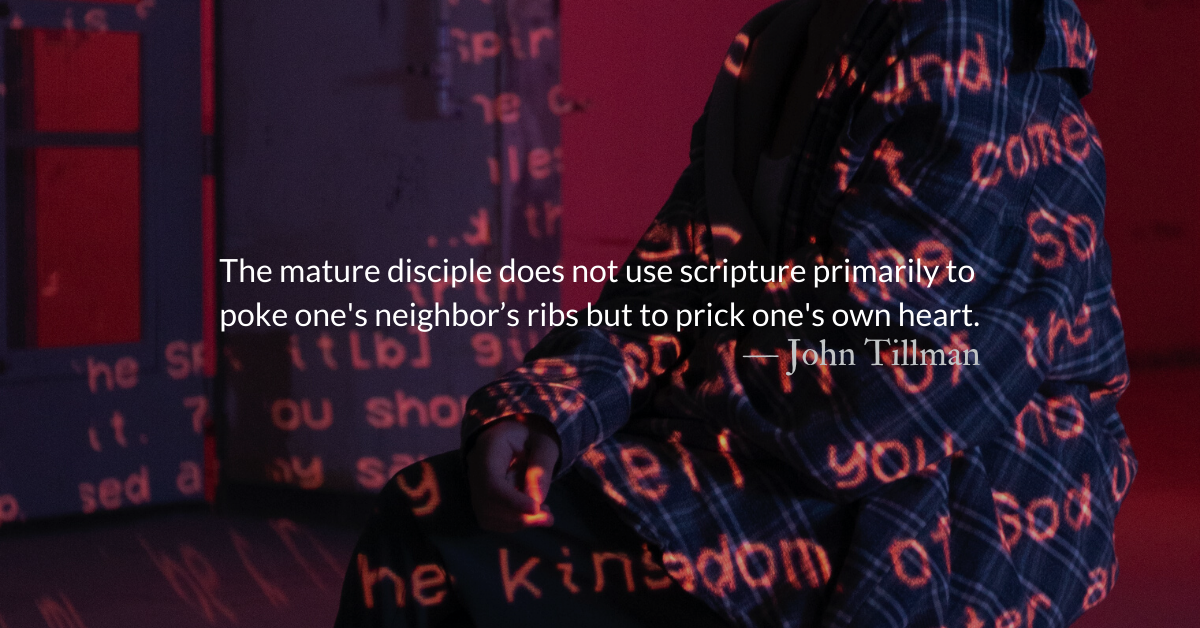Scripture Focus: Isaiah 17.10-11
10 You have forgotten God your Savior;
you have not remembered the Rock, your fortress.
Therefore, though you set out the finest plants
and plant imported vines,
11 though on the day you set them out, you make them grow,
and on the morning when you plant them, you bring them to bud,
yet the harvest will be as nothing
in the day of disease and incurable pain.
Reflection: No Such Thing as God Forsaken
By John Tillman
Isaiah has condemnation to go around.
No matter how evil the surrounding cities have been, however, Isaiah always circles back to remind Judah and Israel that they have been unfaithful and that judgment is coming. “You have forgotten God, your savior…” (Isaiah 17.10)
It can be dangerous and prideful to read biblical prophecies as if we are the righteous prophet. This may apply to a narrow group of people and circumstances but, more often than not, we will find greater insights in prophetic texts by assuming that we are the ones being spoken to, corrected, and condemned as unrighteous. This assumption reaps great rewards in helping us understand why God is angry, what he requires of us, and how we must return to him.
People love to point out sin in others, elbowing them in the ribs and saying, “the preacher is talking about you.” However, confronting our neighbor with a jab in the ribs (or a stinging Facebook comment) is an immature reaction to God’s truth. The mature disciple does not use scripture primarily to poke one’s neighbor’s ribs but to prick one’s own heart.
Like Isaiah’s audience, we may be tempted to shout “amens” when our “enemies” are condemned. However, maturity is shown when we agree with God not about others’ sins but about our own. We prove ourselves to be Christ’s disciples when we celebrate the salvation of our enemies, as the Damascus Christian community celebrated the conversion of Paul, who became God’s chosen instrument to take the gospel to the nations, including the condemned city-state of Damascus.
“There is no such thing as a God forsaken town.” — Carolyn Arends
Paul saw Damascus as a city containing his enemies and the Christian community thought similarly of Paul. Paul was blinded so that both groups could learn to see differently. May our eyes be similarly blinded and our vision similarly improved.
It may be a long road and a long exile between condemnation and redemption. May we not lose hope in our God or hope for our cities. Let us not forget our God, our savior, our rock, our fortress. May we resist the urge to apply judgmental texts to others before we have humbly examined our own hearts. May we never celebrate the destruction or condemnation of others. May we celebrate instead the redemption of sinners and the welcoming of outcasts into God’s family.
Divine Hours Prayer: The Greeting
I love you, O Lord my strength, O Lord my stronghold, my crag, and my haven. — Psalm 18.1
– Divine Hours prayers from The Divine Hours: Prayers for Springtime by Phyllis Tickle
Today’s Readings
Isaiah 17-18 (Listen – 3:44)
1 Peter 5 (Listen – 2:11)
Read more about How Not to Read Scripture
The Bible is God’s Word—his perfect revelation, but it is not a transcript of God’s unambiguous commands. The Bible is a work of art, not a manual.
Read more about How to Read Prophetic Judgment
The best way to read prophecy is to imagine yourself not as the speaker, but as the spoken to.







